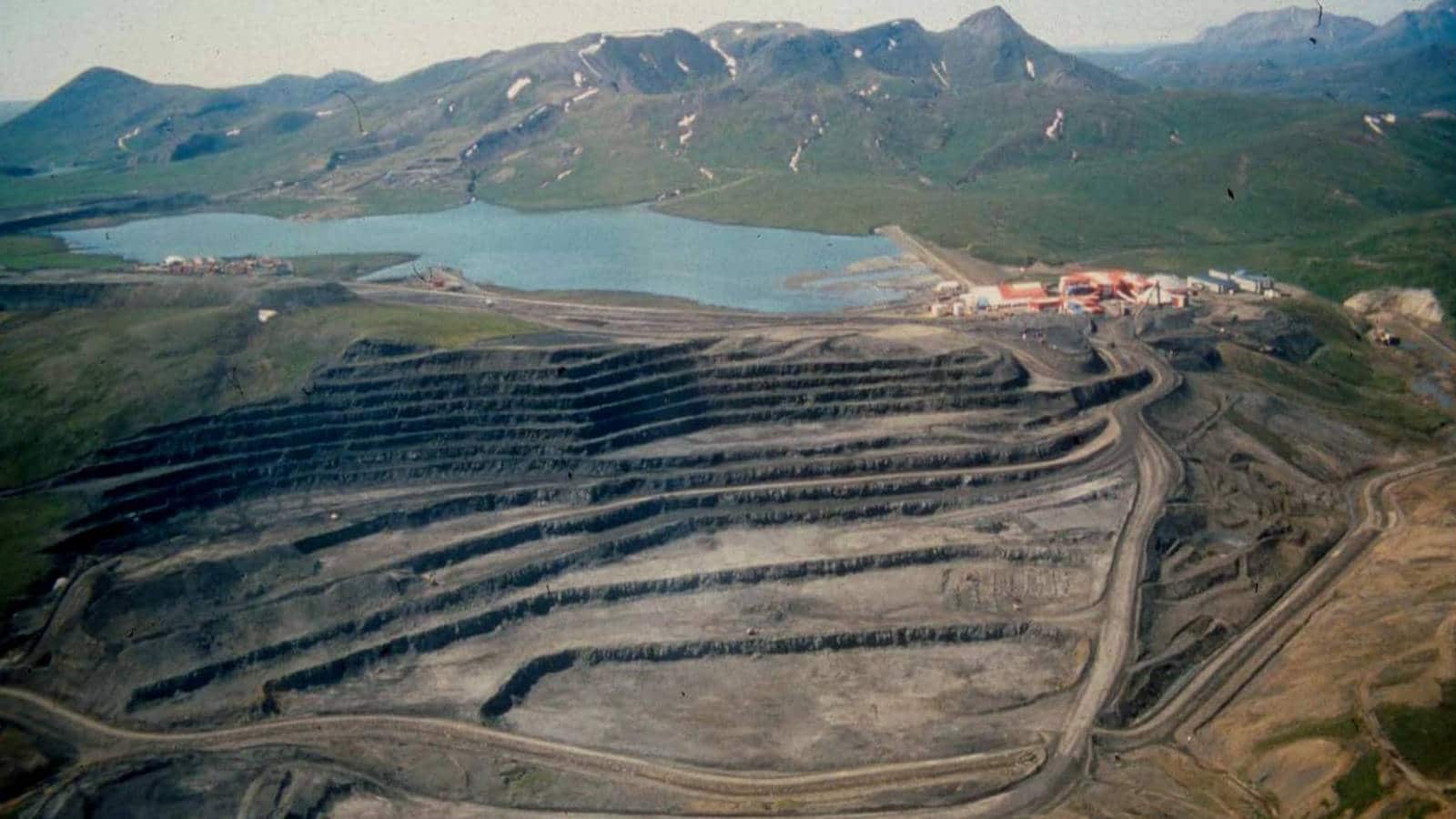Juneau, Alaska — Because of worries about how it would affect the environment of a rich aquatic ecosystem in Alaska that supports the world’s largest sockeye salmon fishery, the US Environmental Protection Agency took an unusually strong step on Tuesday and blocked a proposed mine that supporters called the world’s most important undeveloped copper and gold resource.
The decision, which was supported by Alaska Native tribes and environmentalists but criticized by some state officials and mining interests, kills the Pebble Mine plan for good. The planned location is in southwest Alaska’s remote Bristol Bay region, about 200 miles (322 kilometers) southwest of Anchorage.
In a permit application to the US Army Corps of Engineers, the developer Pebble Limited Partnership said that the only way to get there in the winter is by helicopter or snowmobile. It proposed a mining rate of up to 73 million tons per year.
The Pebble partnership’s appeal of a separate rejection of a key federal permit still needs to be solved.
John Shively, the CEO of Pebble Limited Partnership, said in a statement that the EPA’s action was “illegal” and “political,” and he expected a lawsuit. Shively has said that the project is important to the Biden administration’s efforts to reach its green energy goals and lessen the US’s dependence on other countries for minerals.
Potential Impact On Alaska Fish
Northern Dynasty Minerals Ltd., based in Canada, owns the Pebble Limited Partnership.
The Pebble deposit is located near the headwaters of the Bristol Bay watershed, which is home to a bounty of salmon “unrivaled anywhere in North America,” according to the EPA.
Only 14 times in the roughly 50-year history of the federal Clean Water Act has the EPA used its authority to prohibit or restrict activities based on their potential impact on waters, including fisheries. The use of the EPA’s so-called veto power in this case, according to EPA Administrator Michael Regan, “underscores the true irreplaceable and invaluable natural wonder that is Bristol Bay.”
According to Joel Reynolds, western director and senior attorney with the Natural Resources Defense Council, the veto is a victory for the environment, economy, and tribes of Alaska’s Bristol Bay region, who have fought the proposal for over a decade.
According to Reynolds, the mine would have jeopardized the region’s salmon fishery, which employs 15,000 people and supplies roughly half of the world’s sockeye salmon. Last year, state officials reported more than 60 million fish harvested for 2022.
Science Over Politics
“It’s a victory for science over politics. For the sake of biodiversity over extinction. “I prefer democracy to corporate power,” Reynolds stated.
The EPA says that the discharge of dredged or filled material used to build and run the proposed mine site would cause about 100 miles (160 km) of stream habitat and wetlands to be destroyed.
According to the Pebble partnership, the project can coexist with salmon. According to the partnership’s website, the deposit is located at the headwaters of three “very small tributaries,” and the partnership is confident that any impacts on the fishery “in the unlikely event of an incident” would be “minimal.”
Alaska Gov. Mike Dunleavy, a Republican, said the EPA’s veto set a dangerous precedent that could affect future development in the state, while state Attorney General Treg Taylor called the agency’s action “legally indefensible.”
“Alarmingly, it lays the groundwork to halt any mining or non-mining development project in any area of Alaska with wetlands and fish-bearing streams,” Dunleavy said.
Alaska Republican Sen. Lisa Murkowski opposed the mine but said the EPA’s veto shouldn’t jeopardize future mining operations in the state.
“This determination must not be used as a precedent to target any other project in our state,” Murkowski said.
Dangerous Abuse Of Power
The EPA’s action, according to Washington Democratic Sen. Maria Cantwell, is “the final nail in the coffin for the Pebble Mine” and the culmination of a long battle.
“For generations to come, we will have a thriving Bristol Bay salmon run,” she said.
Bristol Bay tribes petitioned the EPA in 2010 to protect the area under the federal Clean Water Act. The announcement from the EPA, according to Alannah Hurley, executive director of the United Tribes of Bristol Bay, is “welcome news.”
SalmonState executive director Tim Bristol praised the EPA’s decision, saying it “may be the most popular thing the federal government has ever done for Alaska.”
The EPA’s decision is the most recent in a years-long dispute over the project that has spanned administrations.
The decision was described as a “dangerous abuse of power and federal overreach” by Leila Kimbrell, executive director of the Resource Development Council for Alaska Inc. Domestic mining has “never been more important,” according to the National Mining Association, citing high demand for minerals and fragile global supply chains. It stated that the EPA’s decision “stands in stark contrast to national and global realities.”
SOURCE – (AP)











